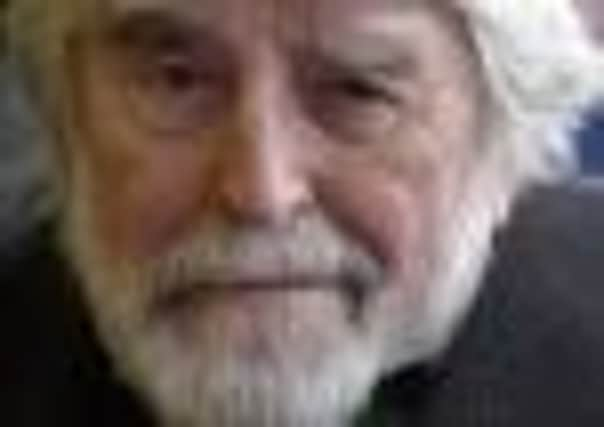Ian McMillan: The night Stan Barstow and I had that empty feeling


His death also made me revive the impulse that got me into writing in the first place: I wanted to be a novelist when I was younger and now I do again, before it’s too late. I want to write a big Barnsley novel that’ll win the Man Booker Prize and get me remembered. A plaque, maybe. Or a statue. I want to write a Barnsley novel that students and researchers will turn to when they want to find out what life was like in South Yorkshire in the early years of the 21st century. I’ve been and bought a new pack of paper specially. I’ve practised the bashful but stunningly articulate speech I’ll make at the awards ceremony. I’ve cleared a space on the mantelpiece for the medals and commemorative vases I’ll scoop. Now all I have to do is write the flipping thing. Then the recognition will follow like day follows night.
Mind you, even for a well-known novelist, the path to recognition isn’t always smooth. I remember years ago booking Stan Barstow to do a reading from his work in Sheffield when I was poet-in-residence at what was then Sheffield Polytechnic.
Advertisement
Hide AdAdvertisement
Hide AdI put a few chairs out in a small room, arranging them in one half-moon so that there was no back row and no front row, just a row. I reckoned that would make the occasion nice and intimate, just Stan reading to you as though he was a voice in your ear. Stan, however, was appalled when he saw the room. “This isn’t big enough, Ian lad,” he said. “Sheffield’s always been very good to me!” I had to confess to him that this was the only room I could get. “Well, let’s at least get some more chairs out, Ian, because Sheffield’s always been very good to me!”
So me and one of the North’s leading writers spent quite a long time getting more chairs from a storeroom and setting them out in rows. Sadly, what I knew but Stan didn’t, and that I’d never have dared to tell him, was that I’d forgotten to do any publicity.
Sure, I’d mentioned it to my students but that was all I’d done. And that was several weeks before the reading. In my naivety, I’d thought that the simple presence of a celebrated wordsmith would bring an audience out of the woodwork. To be honest, a few people had said initially that they were going to come but then I’d had a couple of phone calls and in one case a scribbled note pushed under the door of my office offering apologies, so I knew that we weren’t going to fill Wembley Stadium.
In the event, nobody came. Nobody at all. Stan and I stood there like the first guests at a wedding. Stan repeated his line, forlornly: “Sheffield’s always been very good to me, Ian lad.” I nodded, knowing that it was all my fault.
Advertisement
Hide AdAdvertisement
Hide AdStan suddenly brightened up. “We’ll drag an audience off the street!” he said, energised. He ran to the door and opened it, hoping to see crowds of readers passing by who were desperate to hear provincial prose read aloud in a small room. There was nobody on the street. Then a man appeared through the darkness, walking his dog. And it wasn’t just any man, or any dog. It was Barry Hines, author of A Kestrel for a Knave, another great Yorkshire writer. “Hello Stan,” he said. “What are you doing here?” I ran downstairs and hid before Stan said his catchphrase.
That’s not put me off, though. I think I can become a novelist. I’ve got a subject: Barnsley (and by extension South Yorkshire and by further extension the whole of Yorkshire) in 2011 and how we got here. I’ve got a title, as well. It came to me the other day in the middle of the night and I scribbled it down: “Now Then”. Clever, eh? It combines all sorts of ideas, I think you’ll agree. It combines a traditional Yorkshire greeting with the notion that a lot of the things that are wrong with Yorkshire can, in my humble opinion, be boiled down to the fact that we’re obsessed with the past. We prefer, in other words, the Then to the Now. It also, and this is really clever, sounds like Northern if you say it quickly. If you say it quickly in a certain way with a mouth full of chips.
My protagonist will be a 55-year-old Barnsley man called Dan McPherson. He’ll reflect on all the changes he’s seen in Yorkshire in the last half-century: the loss of the heavy industry, the shifting demographic, the widening chasm of the North-South Divide. It’ll tug at heartstrings and tickle funnybones.
I’d better start. Here goes. Maybe I’ll put the kettle on. Yes, best not to rush into it…